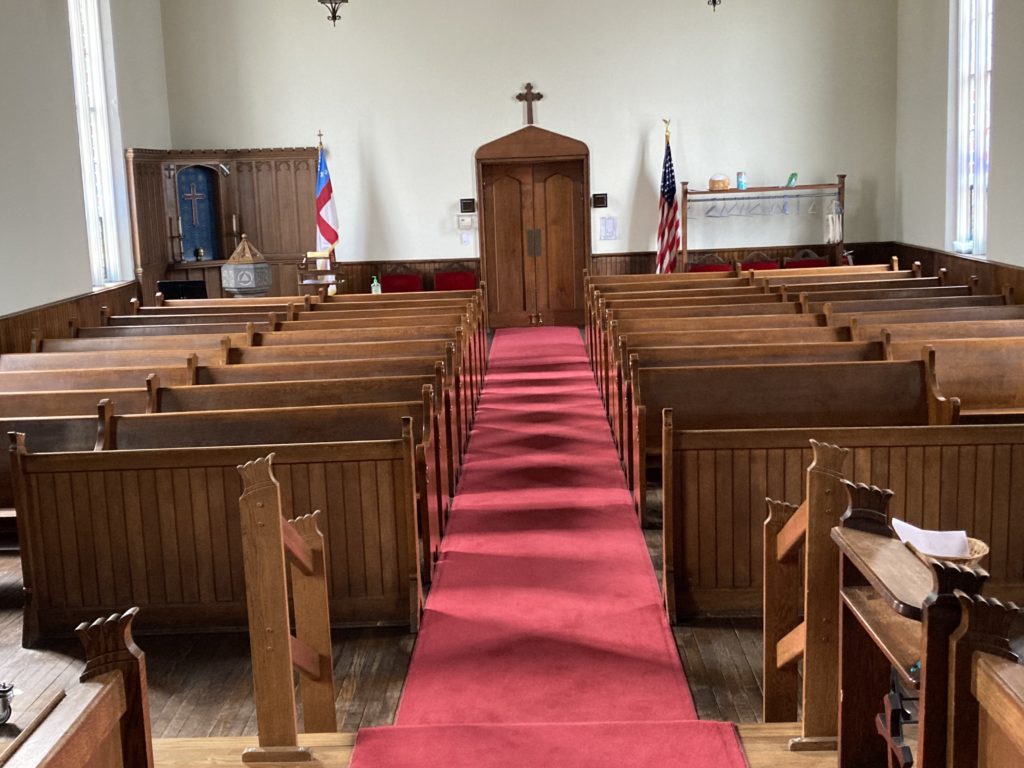Trustbuilding, not programming, is the secret to reaching Gen Z
Kevin Singer and Lucy Cobble
Over the past decade, attendance at Episcopal churches has declined by nearly 25%. Episcopal churches are aging, and to ensure their long-term survival they will need to be successful reaching new generations – including Gen Z, or those born roughly between 1995-2010.
There is just one problem: Gen Z is not exactly eager to shuffle into the pews. In fact, according to Springtide Research Institute’s recent report The State of Religion and Young People 2020, Gen Z maintains a distrustful relationship with religious institutions. On a ten-point scale from zero trust to complete trust, the over 10,000 participants between the ages of 13-25 who participated in the study averaged a 4.9. This compares with an average score of 5.3 for banks – suggesting that banks are more trusted institutions among Gen Z than organized religions.
Notably, this distrust extends even to those Gen Zers who identify with a religion or denomination. Of this group, over half (52%) say they have little to no trust in the religious institutions they identify with.
Trying to impact people across generational lines is not easy to do. In fact, nowadays, generations are more often the target of generalizations and stereotypes than empathy and understanding. Just recently, baby boomers became the subject of internet memes (“OK Boomer”), while Gen Z and millennials feuded over fashion trends and Gen X was blamed – and asked to repent — for starting cancel culture.
When it comes to their unique habits, Gen Z seems to have gotten the brunt of it. They’ve been called the “smartphone generation” with a “mobile addiction,” “particularly vulnerable to the pitfalls of life” and “unprepared for the jobs of the future.” As a result, some older adults have treated Gen Z dismissively, without making the necessary investment to earn their trust and influence them spiritually. In turn, Gen Zers are telling us that they feel dismissed by older adults. Most strikingly, only 8% of Gen Z tell us there is a faith leader they can turn to if needed.
If Gen Z is experiencing distance from faith leaders and distrust in religious institutions, a new model is needed for engaging Gen Z that puts less stock in church programs and more stock in deepening relationships.
A major finding from The State of Religion and Young People 2020 is that Gen Z can be influenced by trusted adults when certain qualities are exhibited in the relationship – qualities like listening, transparency, integrity, care, and expertise. Springtide calls this approach relational authority, a framework based on the understanding that young people often need to feel they are cared for before they can be receptive to the influence or authority of others in their lives.
Caitlyn Stenerson, a Covenant Church pastor in Minnesota, recently tweeted about an experience with a young person that demonstrates the power of relational authority. She wrote:
Every once in a while, I sit and think about one of my first ever challenging youth group kids, who, instead of sitting down with and having a hard conversation without relationship, I just continually loved on, showed respect to, and got to watch Jesus change her life instead. We can preach and teach and lecture and “pull aside,” but if we don’t have love, our clanging cymbals will drive someone away from truth. Love draws in.
I remember walking in a few Wednesdays into my job and realizing that everything in her life had changed, practically overnight. She is one of my inspirations and an example of what happens when we build relationships instead of asserting authority. I know it’s cheesy, but people truly don’t care how much you know until they know how much you care – especially teenagers. Get curious. Ask questions. Show interest. Give them respect. Lessen the burden off of your shoulders to change things overnight. Change will come.
Caitlyn makes it clear that “asserting authority” and a “hard conversation” would have driven this young person away, while compassion, care, and listening is what eventually drew them in.
Fortunately, there is some exciting movement in the Episcopal Church to draw in young people, even despite the hurdles presented by the COVID-19 pandemic. The Episcopal Service Corps was able to recruit a full corps of about 90 members in 2020-21, many belonging to Gen Z, who have begun serving a wide variety of community organizations across the nation. “At times it feels like we’re rebuilding the program from the ground up,” said Andrew Hudgins, program director of Johnson Service Corps, in an article for the Episcopal News Service. “They’ve really craved community. … There’s just a different type of energy [this year],” he added.
Gen Z is craving religious leaders and community they can trust, but this might require rebuilding our approach to young people from the ground up. Whether young people are still spiritually inclined is not the question – Springtide found that majority still consider themselves to be at least slightly religious (71%) and spiritual (78%). The question is whether pastors and other faith leaders are up for the challenge of deepening relationships with young people and gaining their trust.
—
Kevin Singer is Head of Media and Public Relations for Springtide Research Institute, a religious studies professor at two community colleges, and a PhD student in higher education at North Carolina State University.
Lucy Cobble is an editorial intern at Springtide, as well as a junior at Villanova University studying theology, the humanities, and communications.

